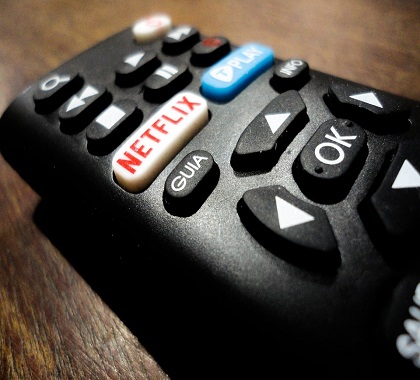Cook County, Illinois Circuit Court Judge Carl Anthony Walker rejected a lawsuit filed by Chicago residents challenging the city’s “Netflix tax” on streaming audio and video services, ruling in favor of the city and affirming the legality of the levy.
The suit, filed by six Chicago residents and Netflix subscribers represented by lawyers from the Liberty Justice Center, claimed the tax violates federal law by taxing digital goods and services.
The Permanent Internet Tax Freedom Act, a measure added to the Trade Facilitation and Trade Enforcement Act of 2015 and signed into law by President Barack Obama, prohibits multiple or discriminatory taxes on electronic commerce and online access.
Judge Walker rejected plaintiffs’ claims in a May 24 opinion, finding the city’s Finance Department was within its legal authority to reinterpret Chicago’s existing amusement tax to include Netflix and other services.
The Liberty Justice Center said it will appeal Walker’s decision to the Illinois Supreme Court.
Easy to Overlook
Jeffery Schwab, a Liberty Justice Center staff attorney representing the plaintiffs, says people may not even know the City of Chicago is taxing their Netflix subscriptions.
“The problem is I think most people don’t even realize the tax exists,” Schwab said. “Netflix, for instance is an automatic charge, and a 9 percent tax may not seem like much.
Schwab says the outcome of the case will set a precedent for the future.
“I think this case has some significant importance, because cities and states are losing tax revenue since less people are getting cable and more people are using internet services for their entertainment,” Schwab said.
Running Out of Options
Andrew Nelms, director of the Illinois chapter of Americans for Prosperity, says the Netflix tax shows governments are running out of ideas for revenue generation.
“For Chicago, this means higher taxes,” Nelms said. “These folks are struggling to find enough things to tax. We’ve now seen them implement the ‘cloud’ tax, they’ve raised garbage taxes, they’ve raised cellphone taxes, they’ve raised property taxes, and they have the highest sales tax rate in the country, or one of the highest. These folks can’t find enough things to tax.”
Follow the Leader …
If Chicago’s Netflix tax survives the upcoming appeal, other cities will follow suit, Schwab says.
“I think we’ll see other states try do this, so I think this is a decent test case,” Schwab said. “If Chicago is allowed to do this, I think others will follow.”
Nelms says the ruling is a bad example for lawmakers in other cities.
“For Chicago, and the rest of the country, this sets a bad precedent,” Nelms said. “They didn’t create a new tax; they just found a new way to interpret an existing tax.”
Big Advantage for Big Companies
Netflix taxes will reduce competition and innovation, Schwab says.
“If every city in Illinois and every city across the various states passes their own Netflix tax, you’ll have multiple taxes at different rates,” Schwab said. “Netflix would have to [administer] this for thousands of jurisdictions. That might not be that bad for Netflix, which is very big, but if a smaller competitor wants to get in the market, this policy will give the established company an advantage if this tax is replicated. I think that’s a significant problem.”
Misguided Creativity
Instead of coming up with creative ways to empty residents’ wallets, Chicago lawmakers should find new ways to promote prosperity, Schwab says.
“I don’t know if there’s a reason why they need to be taxed,” Schwab said. “I certainly don’t think Illinois and the City of Chicago always need to be a leader in finding new and clever ways to extract more money from their residents. I think they need to be leaders in innovation, in fostering and encouraging economic growth.”


